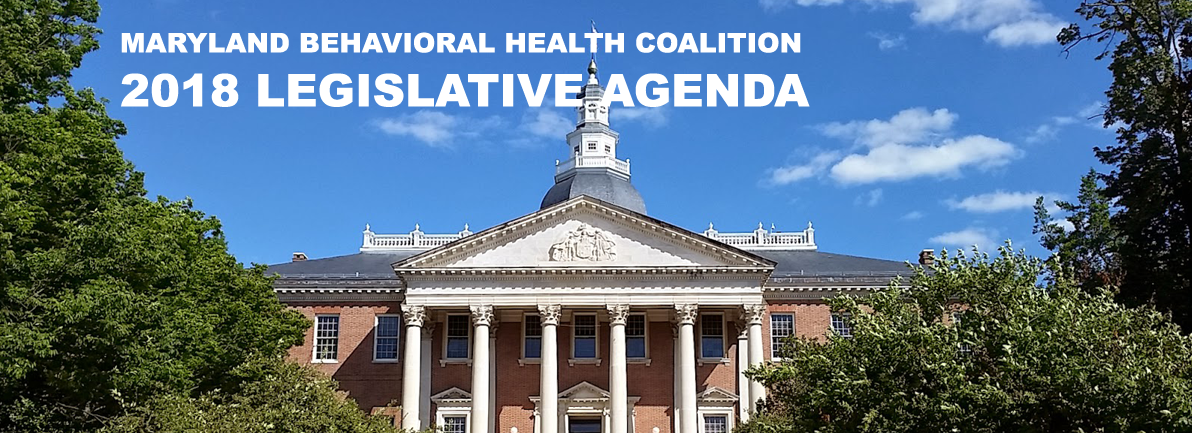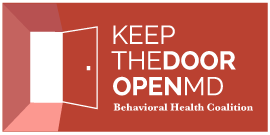
Maryland Behavioral Health Coalition 2018 Legislative Platform
(Available for download here)
Behavioral health encompasses the full range of both mental health and substance use disorders, and the need for treatment continues to grow across the state. The 2017 HOPE Act secured a much-needed increase in behavioral health provider rates, an important step in stabilizing the workforce to ensure access to high quality care. The Maryland Behavioral Health Coalition has a strong legislative platform that will continue to expand access to critical behavioral health services across the lifespan. Our 2018 legislative priorities are:
- Support our behavioral health workforce and guarantee access to a comprehensive system of care by restoring the $8 million cut from the Keep the Door Open commitment.
The General Assembly and Governor Hogan rightly recognized that community behavioral health providers need to recruit and retain qualified staff by passing the landmark HOPE Act of 2017, which increased provider rates – but the proposed budget cuts $8 million. Our leaders must stand firm on their commitment to protect vulnerable Marylanders by restoring this cut and giving our workforce the resources and tools necessary to treat all Marylanders. We must also work to remove barriers to the delivery of critical programs and services – especially in rural areas and non-English speaking communities.
- To guarantee access to quality behavioral health care, the State must restore the $8 million budget cut and honor the commitment to fund the Keep the Door Open behavioral health provider rates in the FY19 budget.
• Expand crisis treatment and telehealth services to ensure access to urgent care and address behavioral health provider shortages
The opioid epidemic is creating a greater demand for crisis services, with opioid-related overdose deaths rising 216 percent between 2010 and 2015. Walk-in, mobile crisis services and residential crisis beds offer more costeffective care, stabilize the immediate crisis, provide important connections to community resources and reduce unnecessary and costly use of hospital emergency departments and jails. The Behavioral Health Advisory Council developed recommendations to expand 24/7 walk-in and mobile crisis services across the state, which would improve Maryland’s system of care. Telehealth services are another effective and cost-efficient means to deliver care in areas where provider care is limited or insufficient.
Maryland must expand crisis and telehealth services to address critical gaps in the behavioral health safety net and ensure Marylanders in need have immediate access to care and connection to ongoing treatment.
SUPPORT SB703/HB1092
SUPPORT SB704/HB1652
- Improve behavioral health services delivered in primary care and enhance programming for children and youth with better data transparency and outcomes measurement.
Readily available data and robust outcomes measurement ensures that children and adults of all ages receive quality behavioral health services in an efficient system. The implementation of behavioral health homes and the nationally recognized Outcomes Measurement System have enhanced measurement in the behavioral health carve out. However, the majority of individuals seek behavioral health treatment in the primary care system, which has not seen similar advances. In fact, only one in five individuals with behavioral health needs receives optimal treatment in the primary care setting, despite the fact that a proven integration model exists.
Maryland should implement the proven integration practice of the Collaborative Care Model in primary care and improve data transparency for children’s behavioral health services.
SUPPORT SB835/HB1682
SUPPORT SB977/HB1517
